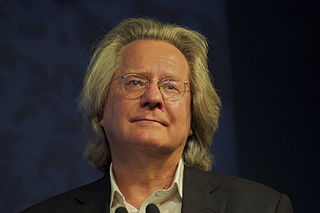A Quote by Maimonides
The strange and wonderful Book of Job treats of the same subject as we are discussing; its contents are a fiction, conceived for the purpose of explaining the different opinions which people hold on Divine Providence. ...This fiction, however, is in so far different from other fictions that it includes profound ideas and great mysteries, removes great doubts, and reveals the most important truths. I will discuss it as fully as possible; and I will also tell you the words of our Sages that suggested to me the explanation of this great poem.
Quote Topics
Also
Book
Conceived
Contents
Different
Different Opinions
Discuss
Discussing
Divine
Divine Providence
Doubts
Explaining
Explanation
Far
Fiction
Fully
Great
Hold
However
Ideas
Important
Job
Me
Most
Mysteries
Opinions
Other
Our
People
Poem
Possible
Profound
Providence
Purpose
Reveals
Same
Strange
Subject
Suggested
Tell
The Most Important
Treats
Truths
Which
Will
Wonderful
Words
Related Quotes
I can tell by my own reaction to it that this book is harmful." But let him only wait and perhaps one day he will admit to himself that this same book has done him a great service by bringing out the hidden sickness of his heart and making it visible.— Altered opinions do not alter a man’s character (or do so very little); but they do illuminate individual aspects of the constellation of his personality which with a different constellation of opinions had hitherto remained dark and unrecognizable.
The only people who can ever put ideas into context are people who don't care; the unbiased and apathetic are usually the wisest dudes in the room. If you want to totally misunderstand why something is supposedly important, find the biggest fan of that particular thing and ask him for an explanation. He will tell you everything that doesn't matter to anyone who isn't him. He will describe paradoxical details and share deeply personal anecdotes, and it will all be autobiography; he will simply be explaining who he is by discussing something completely unrelated to his life.
In general, fiction is divided into 'literary fiction' and 'commercial fiction.' Nobody can definitively say what separates one from the other, but that doesn't stop everybody (including me) from trying. Your book probably will be perceived as one or the other, and that will affect how it is read, packaged and marketed.
Divine Providence has played a great part in our history. I have the feeling that God has created us and brought us to our present position of power and strength for some great purpose. It is not given to us to know fully what that purpose is, but I think we may be sure of one thing, and that is that our country is intended to do all it can, in cooperating with other nations to help created peace and preserve peace in the world. It is given to defend the spiritual values-the moral code-against the vast forces of evil that seek to destroy them.
The most difficult part of writing a book is not devising a plot which will captivate the reader. It's not developing characters the reader will have strong feelings for or against. It is not finding a setting which will take the reader to a place he or she as never been. It is not the research, whether in fiction or non-fiction. The most difficult task facing a writer is to find the voice in which to tell the story.
At the end of the day, people will follow you or people will be energised by you if they buy into your vision or purpose. So the most important thing is to be true to yourself. That's why I would say to be a great leader - you, first and foremost, have to be a great human being. And sharing that purpose and sharing the values.
The will of God prevails. In great contests each party claims to act in accordance with the will of God. Both may be, and one must be, wrong. God cannot be for and against the same thing at the same time. In the present civil war it is quite possible that God's purpose is something different from the purpose of either party - and yet the human instrumentalities, working just as they do, are of the best adaptation to effect His purpose.
External realities - worlds of politics, economics, law, war, interpersonal and social relations - are part of prose fiction. Fiction also includes the realities of a character's interior language. Poetry can encompass the same realities, but in compressed, intensified language, which creates entirely different degrees of emotional force.
Men, learn to speak blessings over your wife and you will see that woman rise to a new level. She will respond to your praise and encouragement. Your words don't have to be poetic, fancy, or profound. Tell her simply but sincerely, "You're a great mother to our children. And you are a great wife to me. I'm so glad I can always count on you."
The main condition is that the spiritual ear should be open to overhear and patiently take in, and the will ready to obey that testimony which, I believe, God bears in every human heart, however dull, to those great truths which the Bible reveals. This, and not logic, is the way to grow in religious knowledge, to know that the truths of religion are not shadows, but deep realities.
Writing fiction is very different to writing non-fiction. I love writing novels, but on history books, like my biographies of Stalin or Catherine the Great or Jerusalem, I spend endless hours doing vast amounts of research. But it ends up being based on the same principle as all writing about people: and that is curiosity!






































